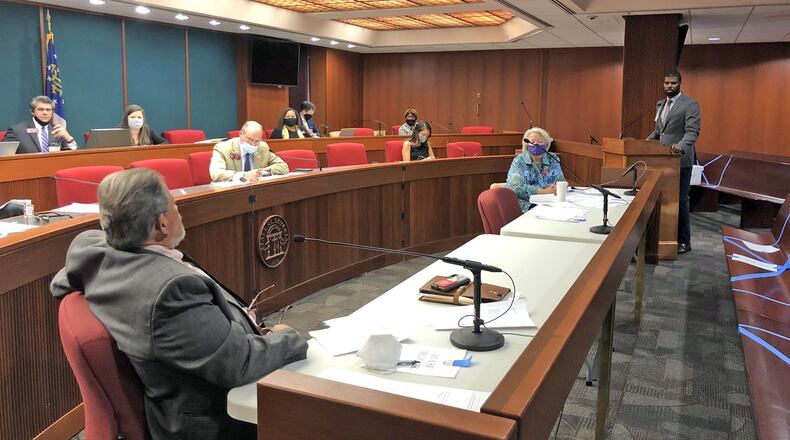A bill that would have barred election officials from mailing absentee ballot applications to Georgia voters failed to pass Friday.
The proposal sputtered amid opposition to a limiting voting access after record numbers of Georgians cast absentee ballots in the state’s primary election. Over half of all primary voters, 1.1 million, voted absentee.
The measure arose after Secretary of State Brad Raffensperger mailed absentee ballot request forms to 6.9 million voters before the June 9 primary.
While the absentee effort allowed voters to avoid human contact during the coronavirus pandemic, it created problems as well.
PHOTOS: Gov. Kemp signs hate-crimes bill on last day of legislative session
LIVE: Track major Georgia bills and see odds of passing
MORE: Complete Georgia Legislature coverage
Some counties, especially Fulton County, struggled to process absentee ballot applications for weeks, forcing voters back to the polls. And House Speaker David Ralston said widespread use of absentee ballots created opportunities for fraud.
The legislation, Senate Bill 463, never received another vote after it passed the House Governmental Affairs Committee on Wednesday.
“Mailing ballot requests was a step taken to protect voters during the COVID-19 pandemic, which is far from over across Georgia and led to historic voter turnout in spite of COVID-19,” wrote 51 small business owners in a letter opposing the bill. “Removing that ability ignores the rural Georgia counties currently seeing increases in COVID-19 cases, and it bans local election officials and the secretary of state from taking that step to protect voters’ health in the future.
Even before the proposal was introduced, Raffensperger had already announced that he didn't plan to repeat his mass mailing of absentee ballot request forms. Raffensperger said it was too expensive and difficult to administer to try again before the presidential election in November.
But if the bill had passed, a prohibition on official mailings of absentee ballots would have been written into state law.
An early version of the bill would have required election officials to add precincts, poll workers or voting equipment if voters had to wait in line for more than an hour in the previous election. That proposal also fell short.
About the Author
Keep Reading
The Latest
Featured




